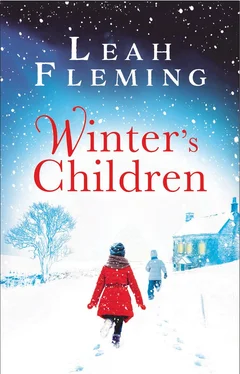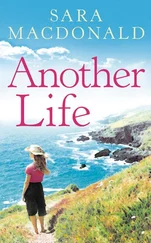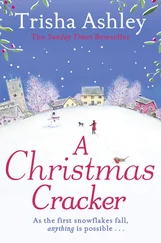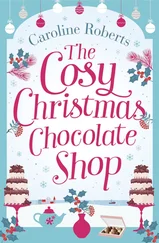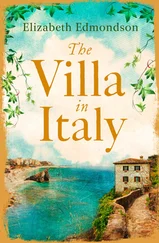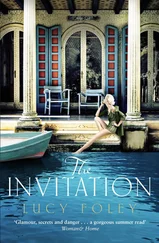Now Jim Grimoldby’s sudden death had shaken his faith in his own judgement. There he had sat, on the same bar stool at the Spread Eagle with his old school mate for years, moaning on about Defra and all the EU regulations, working out plans for their compensation, laughing at Jim’s terrible jokes, playing darts, the occasional game of rugby, while Jim was going through hell.
You never knew what was going on in someone else’s head. That space between the ears is always a lonely place, he thought. Was it just depression at the sight of his sheep culled, too much to drink, or was it utter weariness with the whole damned shooting match that made his friend walk onto the moor with his shotgun and blow his head off? What sort of friend had he been not to recognise such despair? There’d been enough leaflets and confidential phone numbers to ring for counselling but Dalesmen are proud and stubborn – shy of talking to strangers, however well-meaning.
Brian Saddleworth had had a stroke when his stock was taken out, and was selling up. Poor Nigel Danby was in the last stages of lung cancer and in no fit state to carry on. It had been a bad year for the dale farmers on top of foot-and-mouth. So he must stomach this coming intrusion and think about the monthly rental cheque. If his father could see the state things had got to … Tom Snowden once refused even to consider bed and breakfast as a small sideline. Now every farm had a sign at the lane end. That was, until the blanket closure of every footpath, and the walkers all but disappeared.
When he thought how they had slummed it over the years in this cold barn of a house with its winding oak staircase, dark panelling, mullioned windows and ancient furniture. It didn’t seem right to sell off their heirlooms to help fund a project that would have their guests living in a luxury his own mother had never enjoyed.
Old Joss Snowden, Nik’s great-great-grandfather, would be turning in his grave if he knew what he had done. If truth were told, he’d been dipping into the family silver for years, oak settles here, a piece of silver there, topping up his losses. It couldn’t have gone on for much longer. Now there was money coming out of his ears and Stickley was suggesting they sell the place, lock, stock, to some London magnate for a shooting lodge, though even the grouse here were thin on the ground in this grim weather. Who would want to take on this albatross?
Sandringham it wasn’t – more like Wuthering Heights on a bad day – but he loved every wooden nail of it. It was his castle and his domain, his kingdom. There’d been a dwelling here since before recorded history. He was always digging up shards of Roman pottery, Celtic pin brooches, clay pipes and medieval tiles and coins. Nik had quite a collection stashed away somewhere.
The rear of the house went back to the fifteenth century, with its arching roof timbers. Nathaniel Snowden had added to the house in the seventeenth century: sturdy rubble-filled walls and square neat windows befitting the Puritan gentleman. Then his grandson Samuel restored the fortunes of Wintergill with the purchase of enclosed land, rebuilding the house looking south down towards Pendle Hill and the River Ribble. He had sired sixteen children, ten sons to expand his fortunes across the globe.
Then came George and his son, Joss, and his son, Jacob, the teetotal Methodist whose festive spirit was the talk of the dale, who prospered when Victoria was Queen. All of them had built on the strengths of their forebears, all were famous for their hospitality and open house. Grandpa Jo lost three sons with the Yorkshire Light Infantry and Tom, Nik’s own father, had ploughed a straight furrow for the war effort in the forties, seeing some of Wintergill’s most prosperous years.
How could he now be the one to finish them off?
Nora couldn’t settle while Nik was in the bath. She opened up the Side House, put on the heating and brought the linen down from her own airing cupboard. There would be time after the funeral to buy some bread, milk and flowers for the welcome basket. It was such a long time since the last let that she was nervous.
Now she was sifting through her glove box to find a leather pair big enough to hide her gnarled fingers. No one wore hat and gloves much to church, but she believed a woman was undressed without them. She sat at the dressing table stool, staring at her hands.
What a sturdy pair of friends these had been over the years, grasping the hind legs of newly delivered calves, planting vegetables, pickling fruit, plucking feathers, grabbing sheep, soothing sick beasts and children, grasping reins, steering wheels, holding the hands of the dying and whipping up the best sponge cakes in the district.
Now they were gnarled and horny, coarsened by wind and rain, with mottled liver spots, as wrinkled as cooked apple skins. They were long and square with over an octave span: more a man’s hand than a woman’s. No amount of elderflower and lanolin ointment would alter that.
Her dad’s only compliment on her marriage to Tom Snowden over fifty years ago was to look at her hands with pride. ‘You’ll earn your keep with those spades,’ he said. By then any dreams of further education and foreign travel as far from Scar Top as possible were blighted by war and the sense of duty that sent her scurrying back home to do her bit. There was never choice in the matter when Ben Frost, her dad, gave his orders.
As a child she had lived off the moor, boarding in school houses in the town to attend the local girls’ grammar school, matriculating with honours with a place at university a certainty. Then war broke out and it was all ploughs to the furrow, trying to grow arable crops on wet, sodden hilltops. There was no time for regrets when there was a nation to feed.
Where was that nation in the last few years when their produce was bottom of the heap of imported meat? When fleeces lay rolled in the shed and lambs were not worth the slaughter – and as for the poor pig farmers … If only supermarket shoppers would buy British then this terrible disease might not have happened.
Once upon a time it was one sheep, one lamb, one acre but the temptation to intensify had taken over. There was little humanity in farming – not a local abattoir left in the district but a plethora of regulations and directives. Now nature had had the last word. Suddenly her hands started to twitch again as she fingered a silk scarf from the bottom drawer.
Every Christmas for forty years, one new scarf was added to her collection from Tom. He was not one for lavish presents or romantic gestures. They weren’t bred like that in the Dales, but what he bought was always quality and long lasting so she picked out a navy and lilac stripe, not too flashy for a funeral. No one bothered much with full mourning but it was right to make the effort. The old-fashioned symbols were long gone: mourning veils to hide your tears, black armbands, funeral cards and mourning wreaths on the door, curtains closed in respect and hats off as the cortège passed. She would wear a hat out of respect and make sure that her son was decently dressed for the occasion.
There was a time when Nik was one of the smartest, handsomest young men in the dale, with his rugged good looks. He reminded her so much of Tom in his prime; the man who stopped her heart with one of his grins and his blue, blue eyes. If Nik’s shoulders were stooped now it was for good reason. Worry was weighing them down. He was fighting a lost cause and she feared trying to hold back the hungry tide. This afternoon he must shoulder his friend’s coffin to an early grave.
Jim’s suicide brought the pain of the collapse of their industry right to their doorstep. There was anger and confusion. If the vicar doled out any platitudes in his service, she
Читать дальше
